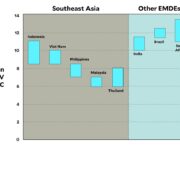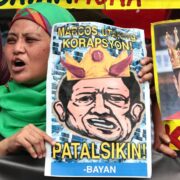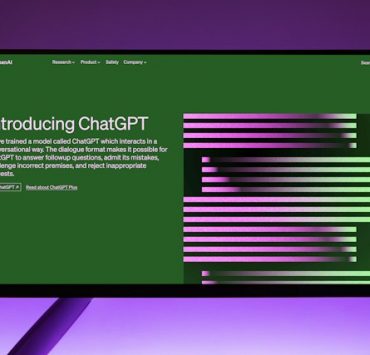Cha-cha bid signatures can still be pulled out–Comelec
the Charter],” he said, noting that the Philippines “started to break away from the rest of Asia between 1997 and 1998—that is when we started falling behind.”
“While everybody else opened up, we closed further,” he said.
Salceda said Resolution of Both Houses No. 6 filed by Senate President Miguel Zubiri was “lacking,” but he still welcomed the move in light of the Senate’s previous refusal to amend the Constitution.
He said at least 358 bills had been filed to amend the Constitution since 1987 and all but one (in the 12 Congress) were “dead on arrival.”
“There is a substantial attempt this time to amend the economic provisions in the Constitution,” he said.
Increasing daily
Salceda believes it is futile to try and stop the people’s initiative despite Zubiri’s resolution as “the genie is already out of the bottle.”
“I don’t think we can stop it because the ordinary people are submitting boxes of signatures for verification to the Comelec,” Salceda said. “It must be met with due respect and openness.”Garcia said that as of Thursday, local election offices in around 600 cities and municipalities had received compiled signature sheets for the petition for a people’s initiative.
“It seems the number is continuing to increase every day,” he said. “The Comelec has no choice but to receive these signature sheets. This is part of our ministerial duty.”
But as of Thursday, no formal petition for a people’s initiative to amend the Constitution has been filed, Garcia said.
“And even if there would be a petition, this does not mean that the petition would push through, because the Comelec shall determine if it was sufficient in form and substance first,” he said.
The petition for a people’s initiative needs to be signed by at least 12 percent of the country’s 67 million registered voters. In addition, at least 3 percent of the registered voters in each of the 253 legislative districts must also be represented.“Even if the initiative gathered signatures of 20 percent of the registered voters in the country (or more than 13 million signatures), but one of the 253 districts failed to garner at least 3 percent of its registered voters, then the petition will be outright dismissed,” Garcia said.
Alleged timeline
If the people’s initiative passes the requirements, the proposed amendment will be submitted to the entire electorate for approval or rejection in a plebiscite.Salceda said that proponents of the initiative “want to hit it (plebiscite) before July—ahead of President Marcos’ third State of the Nation Address.
It was the same timeline that Kabataan Rep. Raoul Manuel had said was being targeted as a “perfect gift” to Mr. Marcos by those pushing the people’s initiative petition, which his group opposes.
Salceda refused to directly confirm Manuel’s timeline.
“I know that July is the specific timeline,” he said. “Why should I confirm what I already know?”
“The point there is that it has to be reasonably actionable, and that there’s enough time before the 2025 elections,” he added. “By October, we need to be filing certificates of candidacy [for the midterm elections].”
No enabling law
ACT Teachers Rep. France Castro said it would not matter how many signatures would be gathered for the people’s initiative.“First, there is no enabling law and second, there were so many reports of signature-buying and bribery using aid,” she said in Filipino.
Although there is Republic Act No. 6735, or the Initiative and Referendum Act, the Supreme Court said in Santiago vs Comelec that the law was insufficient or would not enable petitions for people’s initiative to amend the Charter.
“This is not even citing Cha-cha’s untimeliness and the politically motivated reasons of term extensions and creation of new positions driving the effort,” she said, urging the public to oppose Cha-cha and remain vigilant against moves to revise the 1987 Constitution. —WITH REPORTS FROM DEXTER CABALZA AND JEANNETTE I. ANDRADE INQ

















